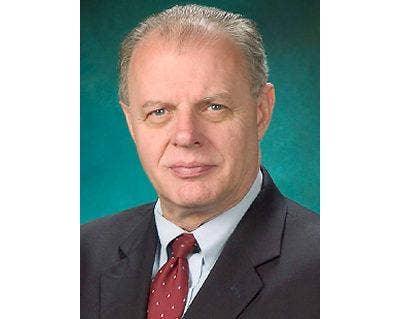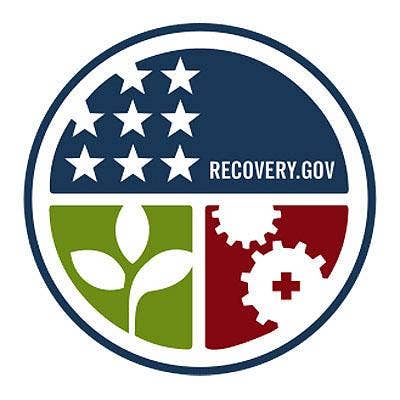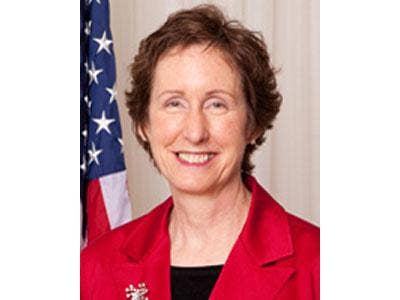10 Burning Questions For The Public Sector Channel

Public Policy Punch
From the health-care spend and firm fixed price contracts to green technology and the cloud, public sector VARs and integrators have their hands full, and they'll hear about all that and more at Everything Channel's XChange Public Sector, which kicks off June 12 in Jacksonville, Fla. (Everything Channel is the parent company of CRN and ChannelWeb.)
Here's a look at some of the most pressing issues in the public sector channel right now, culled from interviews with VARs, vendors and analysts and recent conferences such as HIMSS in Atlanta, Tech Data's Tech EDG conference in Washington and Everything Channel's VAR500-CIO 50 event in New York.

How Much Is The Federal IT Spend Growing?
It's not like the federal government won't spend money on technology; Gartner sees the federal-level IT spend increasing every year, headed for $81.1 billion in 2012. But if that technology doesn't fall within certain buckets -- efficiency-minded, money-saving technologies are at the top of the list -- it probably won't be a priority.
FedSources, one of the government IT-centric analyst firms studying the federal spend heading into the government's fiscal 2011, released its 2011 federal budget analysis in mid-May. According to the report, the federal budget shows a $36 billion drop in federal spending on government contracts, which will certainly impact new IT contracts.
"There's not a lot of new developmental work, and this year, that's going to be an even stronger message," suggested Ray Bjorklund, senior vice president and chief knowledge officer at FedSources. "But on the other hand, there's still a lot of pressure to keep costs down in infrastructure. Think IT consolidation, and think of everything and anything that can save money, like green, like virtualization."

Is Public Sector Cloud Computing For Real?
Federal CIO Vivek Kundra and CTO Aneesh Chopra have extolled the virtues of cloud computing since taking office, and in a survey published by ScienceLogic at this year's FOSE conference in March, some 33 percent of federal IT professionals have cloud computing on their agendas for 2010, a major increase from 12 percent a year ago.
Van Ristau, CTO of DLT Solutions, Herndon, Va., recently suggested to CRN that the government is serious about cloud, about consolidating data centers and open government. Like many observers, Ristau says the vision is there, and the execution will come slowly.
"I think the vision is great, but things were moving a little too fast and they had to step back and take a look at how they were really going to approach it," said FedSources' Bjorklund, assessing how federal agencies have responded to the clarion call of cloud.

How Hot Is Health Care?
Red hot, and that's the truth. But how do VARs and integrators play?
Well, for starters, physician practices moving to comply with stimulus requirements -- meaning they need interoperable electronic medical records set up within a few years -- have a big opportunity for local solution providers. HP is just one vendor that's targeted that niche, partnering with EMR provider McKesson and distributor Tech Data for a healthcare bundle involving HP hardware and services and McKesson software.
But health care is a golden opportunity to broaden the ways VARs can play as trusted advisers. Denver VAR Accuvant, for example, just this month launched its HIPAA/HITECH Alignment Services, designed to help health care providers buy and adjust their IT to best align with the demands of HIPAA and HITECH regulations, as well as PCI compliance.
"We look at how an organization is comparing against HIPAA security standards and the newer HITECH stuff and help them derive and implement a program that's solid," said Evan Tegethoff, solutions architect for Accuvant's Risk and Compliance Management practice. "This is very important for them."

Is Firm Fixed Price The New Normal?
Seems to be. With the government stepping up how closely it scrutinizes contracts, it's also favoring the firm fixed-price model of contracting, which occurs when a public sector entity pays the contractor a set amount that won't vary, and the burden of accountability shifts more to the contractor to deliver on what's promised.
According to Gartner, FFPs could constitute as many as 30 percent of federal contracts within the next few years.

Is Cybersecurity Policy Advancing?
The government has this year what it didn't a year ago: a person to lead its cybersecurity policy making efforts, or at least be a public face -- a throat to choke, if you're a glass-half-empty type -- to address those efforts. That's former Microsoft security chief Howard Schmidt, who brings his 31 years of experience in IT, law enforcement and the military to the role of cybersecurity coordinator, which he was named in December 2009.
While some observers see the advance of cybersecurity policy as continually stalled, others suggest that by fostering inter-agency cooperation within the government and collaborating with IT security companies, progress could be more rapid.
"There is a very real operational requirement to defend the networks," said FedSources' Bjorklund. "But relatively speaking it's not a big piece of the total pie. There's always a lot of buzz, but we've yet to reach a point where there's a coordinated and consolidated solution that involves civilian agencies working with the Department of Defense. There's a lot of good thinking along those lines, but when it gets to the point where we can execute judicious attacks on threats, there'll be a much bigger demand for cybersecurity."

Will Education Break Free Of Budget Bust?
Education, especially K-12, is often inextricably tied to state and local government budgets. With state budget woes a still-brutal reality -- according to the National Conference of State Legislatures, 38 states have predicted budget gaps, totaling $89 billion overall, for their fiscal 2011 -- limited funding opportunities for education IT, outside of the temporary fixes provided by the American Recovery and Reinvestment Act, are also a reality.
Virtualization and "smart" classrooms are technologies that have traction in that type of an environment, suggested VARs, though both advances -- which have been discussed for years -- are still far from the norm.
"The industry's ready, except a lot of schools and state entities don't really have the infrastructure in place to utilize virtualization," said Bill Rutherford, vice president of sales at Pomeroy IT Solutions, Hebron, Ky. "That creates new opportunities but also new challenges."

How Will The Consolidation Wave Play Out?
Consolidation among integrators and vendors with strong public sector interests -- HP buys EDS, Dell buys Perot Systems, Xerox buys Affiliated Computer Services -- has continued through the past year.
With many of those bigger buys having just closed within the past few months (or, in HP's case, become the focus of a major, 9,000-jobs-affecting overhaul), their impact on the broader market will be playing out this year and next, with fiercer competition for contracts and more frequent clashes between integrator giants vying for pockets of health care and government ducats.

How Pervasive Is Green Technology?
Very pervasive, in some quarters, and still a luxury in others. But one thing's for certain: the green movement in public sector -- especially as a cost-cutting measure, as well as a sustainability focus -- is growing every year and now has very powerful advocates in government.
Among them is Martha Johnson (pictured), the new administrator of the General Services Administration (GSA). In a press conference at FOSE 2010 in Washington in March, Johnson said that the GSA would have to practice what it preaches -- that is, there's no way to convince others to go green in their technology purchases if the GSA hasn't done so itself.
Collaboration was a big part of her former job as vice president of culture at CSC, Johnson said, and she would seek to motivate her GSA team in a similar fashion. When the Washington area was hit with record snowstorms earlier this year, for example, GSA insisted its employees telecommute, and that GSA learned a lot about what could be accomplished even with its workers remote.
"I think we can use some of these converging techniques to narrow in on some ways at which everybody can come to an agreement," she said.

Does It Pay To Specialize?
Absolutely. That was the message from public sector integrators at this past winter's IT ChannelVision - Government event, and it's a message that continues to play out some six months later.
Linwood Jolly, president and CEO of Comm-Group, an 8(a), veteran-owned solution provider based in Chevy Chase, Md., said in a CRN interview at ITCV that when it was first starting out, Comm-Group spent a lot of time trying to ferret out opportunities from the Small Business Administration, which had "good information, but they don't own the opportunities." These days, Jolly explained, Comm-Group focuses on the one or two Government-Wide Acquisition Contracts (GWACs) likely to bring it the biggest returns.
Specialization has also proven hugely lucrative for Cherokee Data Solutions, a Claremore, Okla.-based solution provider that specializes in education and tribal governments in the Cherokee Nation. CEO Pamela Huddleston-Bickford said business had grown 300 percent year-over-year this year, following 200 percent year-over-year growth the year before. Stimulus opportunities available for both markets were unexpected years earlier, she said, but you grow if you strike with them while the iron's hot.

Are Small Businesses Getting Shut Out?
With the Obama Administration boasting of assistance to small businesses, SMB solution providers who meet certain qualifications are poised for federal contract dollars purposely set aside for them.
But many say a long-grumbled-about problem -- that big companies, including several Fortune 500 businesses, are the actual recipients of millions in federal contracts that are supposed to be set aside for small businesses -- makes small business designations little more help than blank sheets of paper.
"There have now been over two dozen investigations, over the last eight years, which have found a clear pattern of blatant fraud and abuse in SBA-managed programs," wrote Lloyd Chapman, president of the American Small Business League and a frequent commentator on the subject, in a late March article for The Huffington Post. "It is time for the FBI to step in and get to the bottom of this. To date, the Obama Administration has done nothing to halt these abuses."